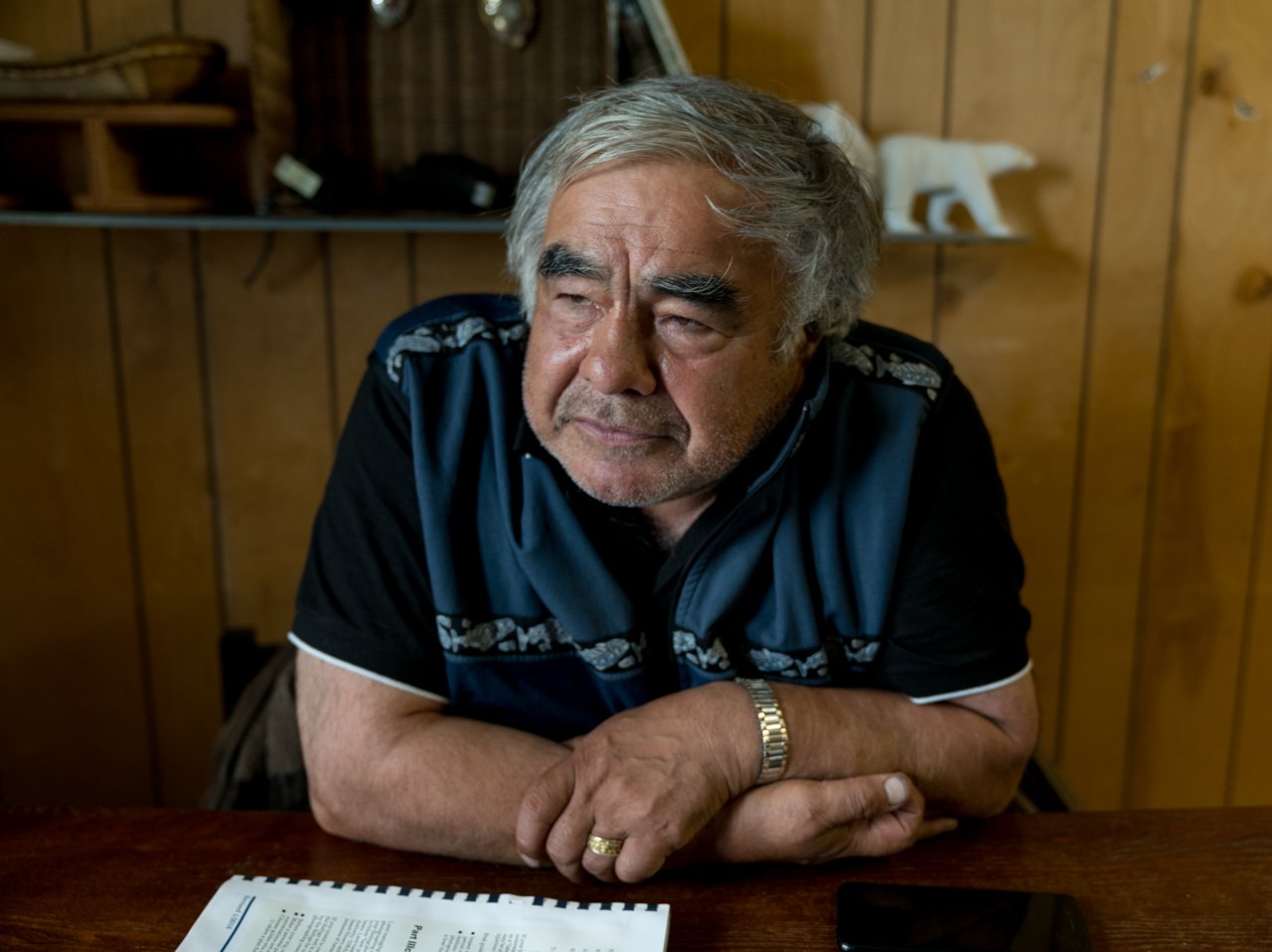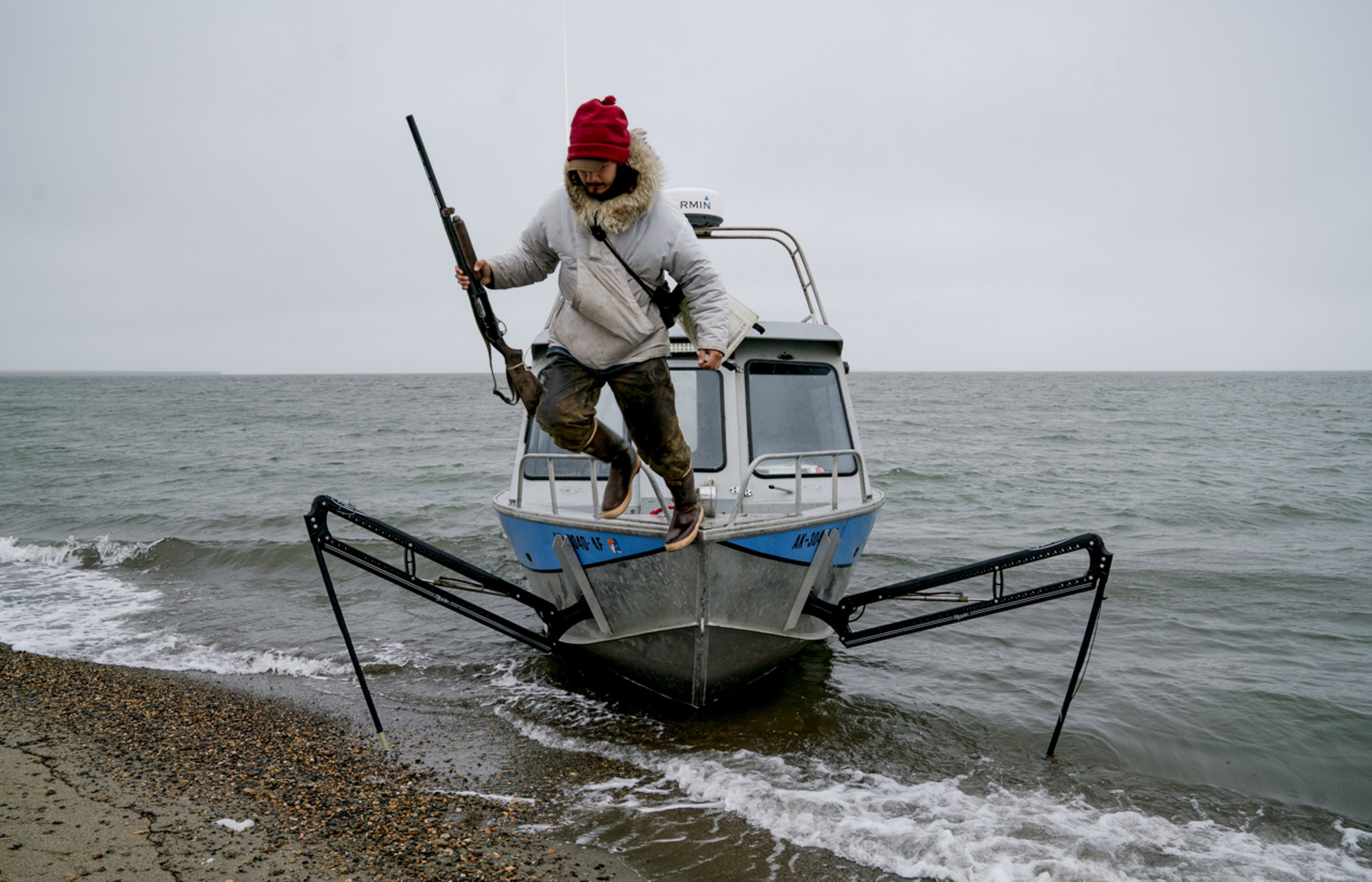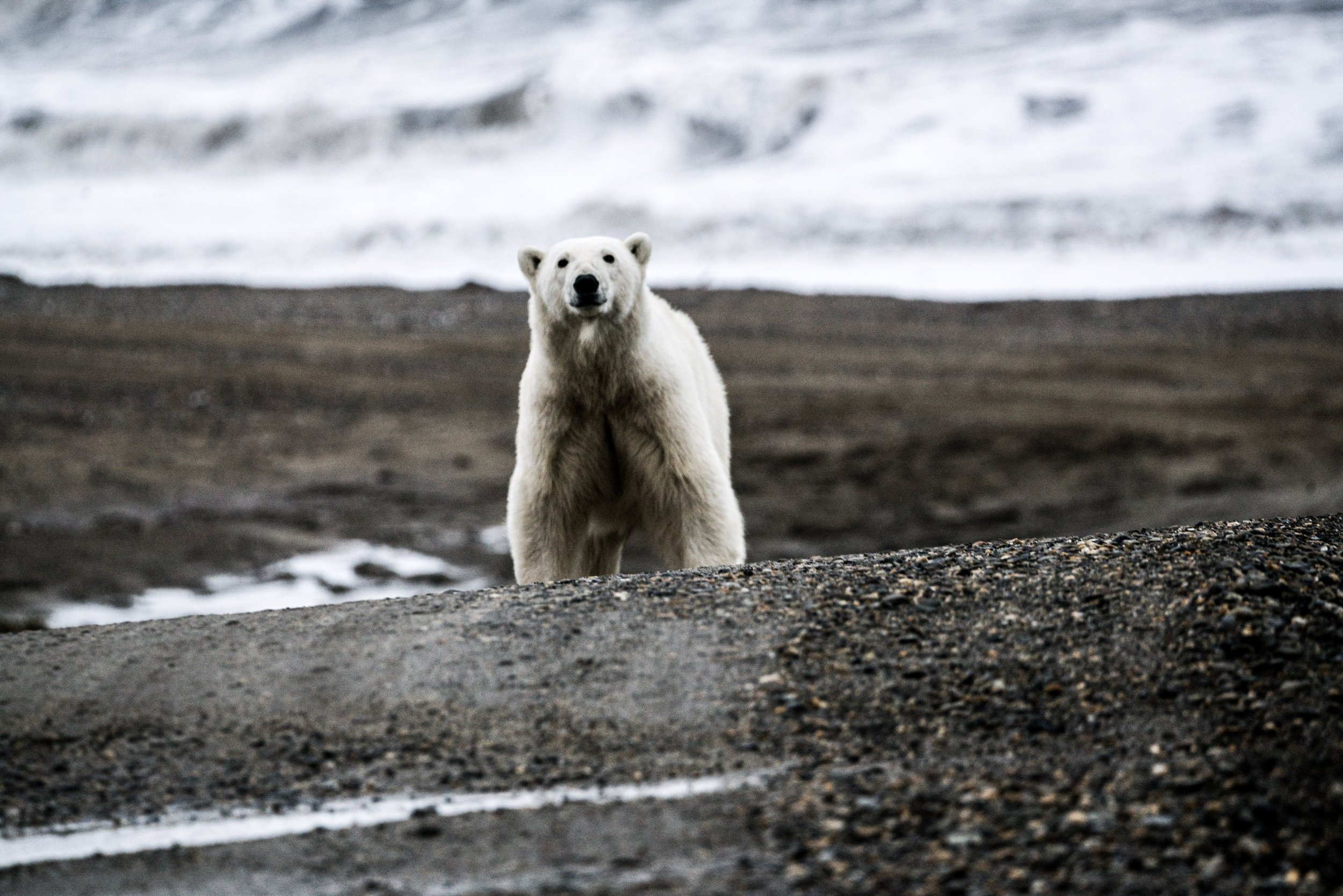Preview
The Refuge dives into the decades-long debate over drilling for oil in the Arctic National Wildlife Refuge. Through our reporting, we ask: what’s at stake if we drill in the refuge—and if we don’t? What does oil development mean for the people who live closest to the refuge? And how did the fate of this remote area in Alaska become one of the most hotly contested environmental issues in America today?
This debate is often reduced to a binary, black and white, pro- versus anti-oil shouting match. But through the dozens of conversations we had with people from the communities closest to the refuge, as well as with politicians, policymakers, and scientists, we found a much more complex narrative.
The more we listened to the people, the more we realized that this isn’t only about oil extraction, conservation, and wildlife: for the people who live there, this battle over drilling is part of a much older struggle for sovereignty and cultural survival.
With Support From
Episodes
Episode 1
Sibling Rivalry
How did the largest wildlife refuge in the country come to be next door to the largest oil field in the country? And how did oil companies, the conservation movement, and indigenous communities each have a hand in shaping the disparate paths of these two “siblings?”
Episode 2
To Secure the Blessings of Liberty
For 40 years, the fight over drilling for oil in the Arctic National Wildlife Refuge has been waged mostly from afar, in Washington, D.C. But what would oil development mean to the people who live closest to the proposed drilling area?

Episode 3
Listen to the People
We continue our reporting from Kaktovik, Alaska—the only town within the Arctic National Wildlife Refuge—to find out how the conflict over drilling for oil in the refuge feels to the people who live there. The more we listened, the more we realized: the heart of the issue isn’t just over oil extraction and development, wilderness and wildlife. Whatever side people took, their focus is on their community, sovereignty, and survival.
Episode 4
Do It in a Good Way
The Gwich’in have lived and hunted in the Refuge long before it was carved out as federal, protected land. Their territory spans a huge swath of northeastern Alaska and northwestern Canada, and their health and culture depends on the Porcupine caribou herd—a group of animals 200,000 strong that calve on the area of the coastal plain slated for drilling.
In this two-part episode, spend time in Arctic Village, a community just over the southern border of the Refuge, and hear from the Gwich’in about what’s at stake for them as development looms in the 1002 area.

Episode 5
Path Dependence
When the debate over drilling in the Arctic National Wildlife Refuge first emerged, most people had never heard of global warming. So over the last four decades, the controversies over oil in the Refuge and climate change evolved on different tracks.
Now, those tracks are intersecting. We dive into the resulting tensions and contradictions around oil and climate in this final episode of our miniseries on the Refuge.
Extras
The Refuge
An Update
Threshold’s Peabody Award-winning third season, “The Refuge,” originally released in late 2019. A lot has happened that could affect the future of oil and gas drilling in the Arctic National Wildlife Refuge since our show came out — so we're providing an update on where things stand today.
Extra
Final Showdown Over the Refuge
Last week, the Arctic National Wildlife Refuge made headlines: the Trump administration finalized plans to open up this piece of remote Alaskan wilderness to oil and gas development.
But what does this latest move really mean? To find out, we sat down with Heather Richards, who covers drilling on federal lands for E&E News.

Extra
“Arbitrary and Capricious?” The Latest on the Refuge
The controversy over oil drilling in the Arctic National Wildlife Refuge is at a critical point: a lease sale may be just days away, but lawsuits have piled up that could put a stop to that sale and put a wrench in the federal government’s efforts to open the refuge to drilling.
Extra
Lease Sale in the Refuge: An Analysis
After four decades of fighting, the lease sale for drilling rights in the Arctic National Wildlife Refuge was held on January 6, 2021. Amy sat down with David Aaronovitch of The Times of London to talk about what happened at the lease sale for their podcast, “Stories of our Times.”
Photos by Nick Mott
Threshold Newsletter
Our newsletter is a great way to learn about what we're working on here at Threshold. Stay connected to us between seasons and find out what we're reading, listening to, and watching that makes us think deeper about the world and our place in it.



